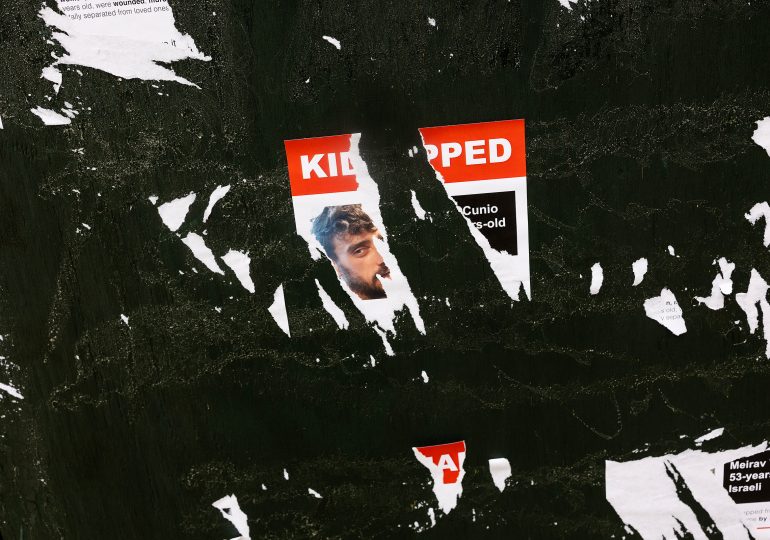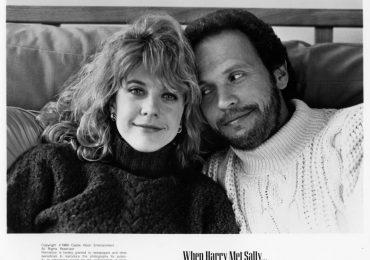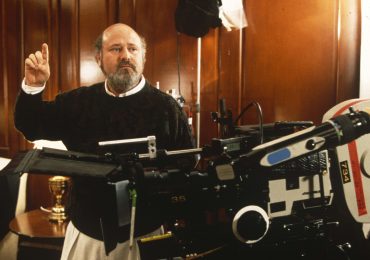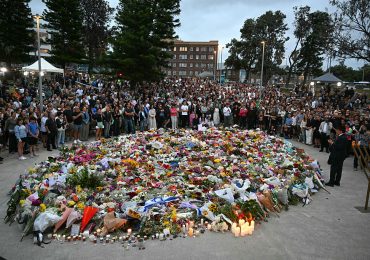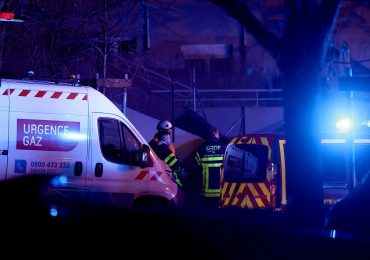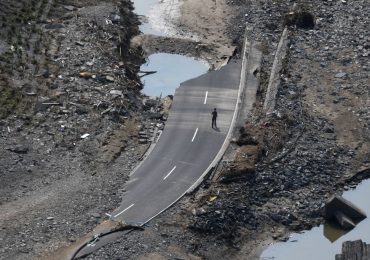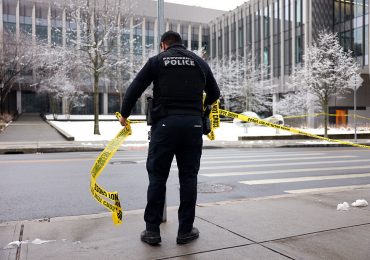I can still remember the feeling of standing on the Beacon Theater stage in front of 3,000 people. As I delivered the NYU Law convocation speech, my classmates, gathered together in the name of “violet pride,” smiled and waved excitedly from the crowd. Dressed in festive academic regalia and accompanied by sounds of bagpipes and overly emotional family members, we reached a personal and professional peak. Christians, Muslims, Jews, and members of other religions trusted me, an Israeli Jew, to serve as their voice. That was the summer of 2015.
[time-brightcove not-tgx=”true”]
Next week, the class of 2024 will experience the same. For one special day, they will feel part of something greater than themselves. But while less than 10 years have passed, so much has changed. Given the antisemitic discourse on U.S. campuses since the fall, and particularly in the past month, the notion of an Israeli Jew representing his class amid a war in Gaza seems less of an image taken from law school and more from the Department of Science Fiction.
The question is why.
Read More: The New Antisemitism
One of the things I tried to stress in my speech back then was that despite our diverse backgrounds, our common denominator as humans is quite similar. A 10-month Master of Law program with people from over 60 different nationalities taught me that, as individuals, we all want the same basic things at the end of the day: health, happiness, and self-fulfillment. Omitted from my speech was a core condition for pursuing these goals: constantly using one’s inner compass to identify how our words and deeds affect a given community. Mentioning this stipulation felt unnecessary in 2015. Indeed, as most of us have recognized, with great power comes great responsibility. Today, it seems, a different standard governs some of America’s top academic institutions.
The NYU I experienced was filled with wisdom, excellent teachers, and intelligent classmates. Time and again, we were encouraged to debate and discuss sensitive topics with respect and honesty. This kind of environment is uncultivable for hate. It doesn’t mean everyone agrees, nor does it suggest one cannot challenge the other. But it does mean considering that free speech is not without consequence.
Read More: What America’s Student Photojournalists Saw at the Campus Protests
Today under the guise of finding “meaning,” pursuing a “cause,” or simply finding joy by belonging to a larger group, a significant number of students are exhibiting not intellectual decency but terrorism sympathy. Some are chanting genocidal slogans or expressing antisemitic hate, even waving flags of terrorist organizations while ignoring their lethal agendas and atrocities. It’s not only immoral and wrong, but it is also dangerous. The result is an atmosphere that romanticizes horrendous crimes against humanity and enables public humiliation of Jews just because of their religion and ethnicity.
The numbers tell the story. According to a recent Harvard CAPS-Harris poll, 37% of Americans ages 18 to 24 support Hamas – a terror organization that attacked Israel on Oct. 7, killing about 1,200 people and taking more than 200 hostage – more than Israel. A majority of that age group (57%) favors an unconditional ceasefire between Israel and Hamas that “would leave everyone in place,” meaning abandoning more than 130 Israelis, Jews, and Muslims, including women and children, in hell. Radical and lethal antisemitic ideology, it seems, invaded America’s elite institutions without even firing one bullet.
Read More: The Most Influential People of 2024: Rachel Goldberg-Polin
This is how it is with the antisemitic monster. It’s not always visible, tangible, or blatantly brutal. Sometimes, it’s right before you, stretching your boundaries and abusing sacred civil rights. Occasionally, it makes you uncomfortable, but you keep telling yourself that a democracy should tolerate almost anything and that the threshold hasn’t yet crossed. Slowly, it marks a new line in the sand of your tolerance while you keep convincing yourself that it will go away. But then it blows up in your face. And when it does, you realize something deeper is going on. The worst, of course, is when it’s too late.
But it is not necessarily the case here. A safe and thriving academic environment is achievable with concrete actions promoting freedom of expression, not freedom of self-destruction. These actions should be part of a larger plan involving academic leadership and moderate religious figures from all walks of life. Such a plan must ban antisemitic chants on campus, enforce regulations and laws that ought to protect students’ safety, oversee the impact of foreign funding and interference in academic curricula , and encourage constructive and educative dialogue regarding the need to counter antisemitism and other discriminatory practices against people based on their skin color or religion.
The critical point is that this is no longer an Israeli issue. It’s not even a Jewish issue. It’s an American issue. While tax dollars were generous enough to help democracies such as Israel or Ukraine protect themselves against anti-democratic enemies, they could fail to protect America from the spread of terrorist ideology back home. When something like that happens in the most charitable educational beacons of knowledge and free mind, this means that what is at stake is not America’s soil but its destiny.
The class of 2024, the future of the free world—dramatic as it may sound—will be in your hands one day, not too far away. As you all graduate, this is the time to stand on the right side of history. The great Martin Luther King Jr. said, “Darkness cannot drive out darkness: only light can do that. Hate cannot drive out hate: only love can do that.” May your future and conduct be filled with love and light.
Leave a comment
